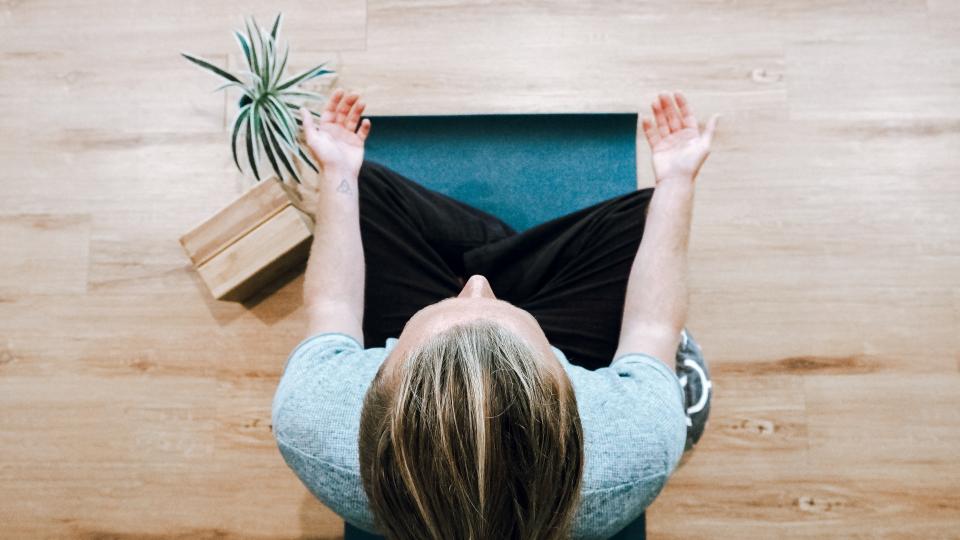
Dealing with pressure and five tips to help you cope
Dealing with pressure and five tips to help you cope
Kitrina Douglas, Professor of Narrative and Performative Research at the University of West London, explores the word of stress, pressures, and burnout – and some of the ways you can help overcome them.
A lot has been written about high-performance athletes and their ability to perform under pressure. There’s also a lot that has been misunderstood about high-performance sport, and myths circulating about how pressure affects athletes.
When top gymnast, Simone Biles, pulled out of the Olympics in 2021 citing mental stress, I was surprised at how shocked the news, media and general public were. It seemed there is a belief that athletes thrive in high-pressure situations. Simultaneously, there is also a perception that failure to conquer fears and pressure are signs of a flawed character.
I’ve spent most of the past 30 years either playing high-performance sport or researching it. One thing this has taught me is that contrary to popular belief, stress, pressure, and burn-out don’t always mean an individual will perform poorly.
Often an athlete can perform well, but it doesn’t mean the pressure they are under isn’t having a detrimental effect. For example, in my research, there were numerous athletes who were showing signs of stress, sleepless nights, loss of hair, irritable bowels, sickness, headaches and skin complaints. So, when it appears someone is managing and being strong, it may also be the case that they do not ask for help or speak up because they do not want to be labelled ‘weak’.
It is important to remember that what is stressful for one person is not stressful for the next. We must each understand our own limitations, expectations and health. One of the ways athletes try and mitigate undue pressure is by creating an optimum environment to perform and these are things any of us can try and achieve.
If you are studying for a degree or have exams or course work, or if you need to present to your colleagues or at a conference, learning how to get yourself into the right state is similar. In order to counter the detrimental effects of pressure, many athletes employ some of the following:
1. Mindfulness
Mindfulness is a useful tool and practice as it helps alert and identify physical responses to pressure that may lead to poor performance or poor mental health. It also helps to focus attention, which is a useful skill in any domain.
2. Practise
Understand what it is you must do, then practise it. For example, athletes practise for specific events and situations in order to cope with them. It’s similar when you study or give a presentation. There are no shortcuts to performing well - it’s a case of practising something over and over. Reading and re-reading, writing the same thing again and again. This may seem boring, but so too can the drills and training that sportspeople engage in, but they do it because they know without it, optimal performance is unlikely.
3. Learn to cope with pressure
Athletes practise under tournament conditions. For students, presenting in front of peers and forming study groups in order to make a rehearsal seem more important is a way of learning to cope with the pressure you are likely to face.
4. Get help
Athletes aren’t frightened to get help, be it a coach, nutritionist, physio and/or psychologist. But sometimes it seems students may feel they have to go it alone.
We have wonderful student resources at UWL to help you through every part of your studies, from improving grammar to understanding how to think critically. Reach out – it is not a weakness and doesn’t mean you shouldn’t be studying. We are all at different stages and it doesn’t reflect your ability or intellect.
5. Don't be overly self-critical
As long as you feel you have tried your best, don’t get overly annoyed or disappointed with yourself if you are not able to get a piece of coursework in on time, or if you receive a low mark. We all struggle at times.
Related news
-
UWL joins St Mary’s University for mental health study
Learn more about UWL's new funding to lead a study into mental health support for students.
-
UWL and West London NHS Trust to offer tailored mental health workshops for minoritised ethnic students
The University of West London (UWL), its Students’ Union, and West London NHS Trust have teamed up to offer tailored mental health and wellbeing workshops for minoritised ethnic students over the next two years.
-





